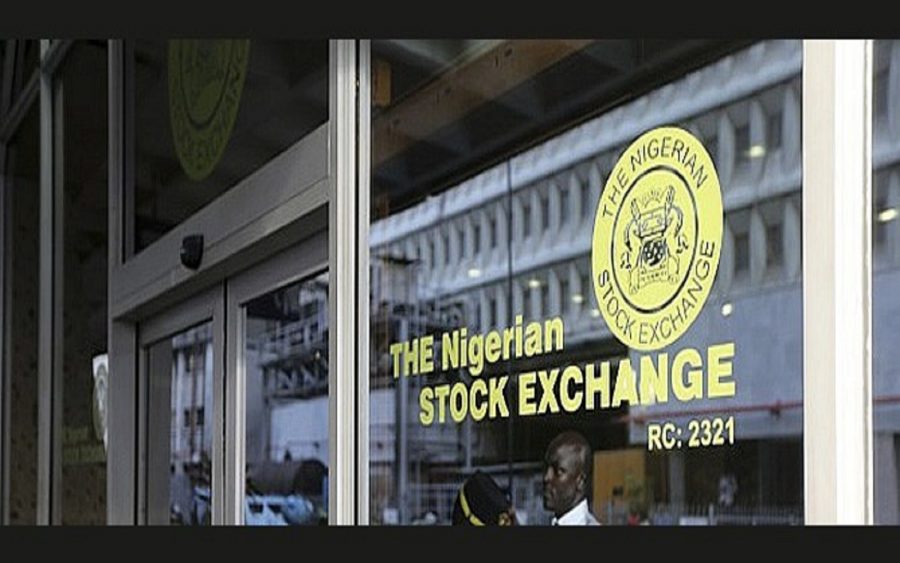I got a call from my friend Nneka asking me how to invest in the stock exchange and what it is all about. I tried explaining on the phone and then figured it was better to just write about it for her and for so many other people out there who need to know.

Nneka: What is a stock?
Ugodre: A stock is a unit of a share of a company that is traded on the floor of the Nigerian Stock Exchange (NSE). It is also often referred to as a share.
Nneka: Where do stocks come from?
Ugodre: Every company has shares which the owners lay claim to. When you go to register a company at the Corporate Affairs Commission (CAC) you typically say your authorized share capital is N1m made up of 1m ordinary shares of N1 each. This means your initial capital at the start of your company is N1million represented by those shares.
Whilst the value of your capital may increase over time, your shares remain the same till you decide to increase it again and register the same with the CAC. When the shares are listed on the floor of the NSE they are tradable as stocks meaning people can buy or sell them.
Nneka: So what is the Nigerian Stock Exchange and what companies trade their shares on it?
Ugodre: The NSE is a market for buyers and sellers of stocks (shares) to transact officially. In Nigeria, like in most exchanges all over the world, a company needs to fulfill certain laid out criteria to be able to have its shares traded on the NSE. Some of the criteria are that the company must be a public company and must have more than 50 shareholders (owners).
[Read Also: Difference between an Emerging Market and a Frontier Market]
Whenever a company decided to sell shares for the first time on the NSE, they perform what is called an Initial Public Offering (IPO). A subsequent offering of shares by the company can come as a Public Offer (PO) or a Rights Issue. I will come to these later.
Nneka: Are these the only ways people can buy shares on the Nigerian Stock Exchange?
Ugodre: As mentioned, the NSE is a market place for people to buy and sell shares. Therefore, those who buy shares during an IPO or during a PO can also sell those shares to willing buyers whenever they want. As such, once a company’s shares are listed on the NSE, their outstanding shares can be bought or sold provided there is a willing seller and a willing buyer with or without a PO. Stocks are traded every working day of the week.

Nneka: Can I buy any number of shares I want?
Ugodre: Just like in any market, the stock market is also limited to the forces of demand and supply. For example, whilst a company may have 10million shares outstanding (available on the stock exchange) only a portion of it may be offered for sale by its owners. Therefore if only 5million of those shares are regularly traded then the maximum you and any other willing buyer can buy is 5million.
Nneka: Is that why I hear a lot about banking stocks?
Ugodre: Exactly! An average bank has billions of outstanding shares (stocks) that are traded regularly on the NSE. Therefore people can buy and sell them more frequently, unlike a small firm that probably has just millions.
Nneka: Before you forget, what are the right issues and public offers?
Ugodre: Public offers are made after a company must have debuted on the floor of the NSE with an initial public offer. Companies make public offers when they see the need to source for money other than or in addition to debt to finance new projects, purchase fixed assets or simply expand the business. It could also be to repay debt or invest in research and technology.
When a company engages in a pubic offer they could offer new shares by increasing the share capital (thus creating new shares) to the public or offer those shares to existing shareholders only. Offering those shares to the existing shareholders only is called a Rights Issue. When they offer the rights of those shares to existing shareholders only, it means they mostly do so in the same proportion to what they already have.
For example, they could offer the right issue as 2 for every 5 owned. Meaning of you had 1000 shares you are offered an additional 400 shares. That way if all the rights issues are taken by the owners of the companies their shares increase in proportion to what they originally have.
However, this hardly happens as some may not be willing to take up their rights. This allows others to take it up and increase their percentage ownership. Rights issues can also be done in conjunction with a fresh issue to the public.

Nneka: So, can I just go to the stock market to buy shares on my own?
Ugodre: Not exactly. You can only buy shares through a stockbroker who is registered to a stockbroking firm. Therefore whenever you decide to buy shares look for a decent stockbroking firm and open an account with them. Some have a minimum amount of money that can be used to open an account. After opening an account you can then instruct them to buy and sell shares on your behalf from time to time.
They also give you statements of your stocks (portfolio) periodically so you know where you stand. In exchange for these services, you pay the fees.
Nneka: Fees Ke? How much are their fees?
Ugodre: Fees paid to stockbrokers are uniform and are approved by the Security and Exchange Commission (SEC) the regulatory authority for activities on the stock market. Fees are also paid to the NSE, SEC and being a transaction, VAT is also paid.
–Buying and Selling–
Nneka: Now, how do I start buying shares?
Ugodre: Before you start buying shares you have to identify companies and the share price that they are currently being sold for.

Nneka: What is a share price?
Ugodre: A share price is a price that a stock is currently sold for on the floor of the NSE.
Nneka: So are shares worth N1 cheaper than those worth N100?
Ugodre: Not exactly, in fact not at all. Shares are not measured that way. A unit share price is actually determined by dividing its market value by the number of shares outstanding. For example, a company that has 10million outstanding shares and market value or capitalization of N100m will have a share price of N10.
Similarly, another company that has the same market value of N100m but with outstanding shares of 20million will thus have a share price of N5. So you see, even though one goes for N10 and the other N5 they all have the same market value. The only difference is that they have a different number of shares and as such doesn’t mean one is cheaper than the other.
Nneka: So you mean the number of outstanding shares has nothing to do with the share price going up or down?
Ugodre: Not directly. The reason is that companies that have a higher quantity of outstanding shares are considered very liquid and thus do not get bogged down by the artificial premium (or value) scarcity causes. Scarcity like you know thus affects the price of things but does not necessarily mean they are cheap or expensive or even worth the price.
Nneka: Gosh, so how do I know if a share is worth the price or cheap or expensive?
Ugodre: Now that is the technical part and that is why you have a stockbroker. Stockbrokers are there to advise you on which stock to buy or sell or hold.

Nneka: What is buy, sell or hold biko?
Ugodre: “Buy” is when a stockbroker advises that you buy the stock because they believe the share price will appreciate in value. “Sell” means that the company is expected to perform badly in the soon to be declared results as such their share price may depreciate in value making you lose money.
“Sell” could also mean that they think the stock has reached its peak in terms of valuation and thus the price may start to crash due to owners of the stock hoping to sell and earn some profit. “Hold” means that the Stockbrokers are advising: do not sell if you own the stock. They say this because they expect the stock to rise soon or expect some news that will determine whether they should buy or sell.
Nneka: Ok! What if I don’t want to rely on a stockbroker for advice or more like I just want to be able to decide on my own whether a stock is cheap or expensive or bad?
Ugodre: Well, that depends on luck, a good eye for knowing good stocks and your investment horizon. Since the value of stock mostly depends on how the company performed in the past, currently performing and will perform in the future; it is important to identify companies that have the potentials to do very well in the three performance metrics I mentioned.
Therefore you must know how to analyze company financial statements. You can also rely on technical analysis which is somewhat basically making investment decisions based on history, trends and market information. For example, some people decide on what stock to buy by analyzing the past history of the stock in terms of its price going up and down at various times. Technical analysis also involves using charts and graphs to estimate the value of a stock. No need to bother you with all this. Just follow this link
Nneka: OK…I have heard of P.E ratios and Earnings per share, please what are they?
Ugodre: Earnings per share basically relates to the profit a company makes per every unit of shares held. Using the example above, assuming the company with 20m ordinary shares has made a profit after tax of N10million. Its earnings per share will, therefore, be 50kobo (N0.5).
Since it’s market price was N5 the Price Earnings Ratio (P.E ratio) is therefore N5 divided by 50kobo which is 10x. This means that those who pay N5 to own the shares are basically paying for a premium equal to 10x (times) the earnings per share of the company.
Nneka: Isn’t that too high?
Ugodre: Well, you rarely get a good stock that has a P.E ratio that is less than 5. Shares with single-digit P.E ratios are either undervalued or have company fundamentals that suggest the company is not doing well. In addition the premium you pay to own stock factors in the company fundamentals, growth potentials, brand strength, competitiveness of the business, taxation, debt amongst others.

Nneka: What if I do not want to sell a stock after I buy it. Or I don’t want to sell anytime soon?
Ugodre: Then you must like long term investing. That, of course, is very plausible and a good way to invest. That is what makes Warren Buffet very successful and one of the richest men in the world. Long term investing mostly relies on fundamentals rather than technical analysis. They are called Value investors.
Value investors do not necessarily rely on price movement since the performance of the company is more important. Since they invest for a long time, metrics like the financials of the company over the past 5 years and above, their competitiveness, the industry, management etc are the basis upon which they invest.
In exchange for this, they get compensated by dividends and long term consistent growth on their share price. Because you are holding on for the long term, it is important to buy very well run companies with good potentials at a cheap often called (intrinsic value) price.
Nneka: Dividends. How much do they pay?
Ugodre: Companies have different dividend policies. However, what you should concern yourself about is about much dividend they pay per share relative to the market price per share of the company. That is what is called a dividend yield. Using our example above, the company decided to pay out 20kobo out of the earnings per share of 50kobo as a dividend.
Based on the share price of N5, the dividend yield is therefore 4%, which N0.5/N5. Therefore for a long term investor, it means every Naira of your investments returns just 5% assuming you decide to not to sell the stock. However, stock prices do not necessarily remain the same and as such you will have to add the value appreciation as a return even though it hasn’t been cashed.
[Read Also: Master Financial Terminologies used in Investing in Nigeria]
Nneka: Are there other sources other than dividends and selling shares?
Ugodre: There is also a bonus issue that companies also give to their shareholders. The bonus issue basically is when the company agrees to give out additional shares to its shareholders for free. I use the word free because you do not need to pay for them from your pocket. Shareholders can then sell those shares on the floor of the NSE should they want to and pocket the value whilst still maintaining the number of shares they had before the bonus issue. Some don’t even sell the shares preferring to just keep them and add to their portfolio.
Nneka: Really?? So is that why people are so excited whenever bonus shares are announced?
Ugodre: Yes! Often times, prior to when the bonus shares are issued, the share price increases because everyone wants to buy it. It also increases because there is a fixed date whereby the register of shareholders is closed also referred to as a marked down date. When a stock is marked down say May 15th, it means only those who own the share prior to May 15 will receive the bonus shares
Nneka: Does this Bonus share favour the company at all?
Ugodre: Well, it sort of does. Sometimes companies do not want to pay out dividends as cash opting to use the cash to invest back into the business. Therefore, to ensure the shareholders are able to cash in on some value returns they just issue them bonus shares in proportion to what they already own. Bonus shares can be one for every two held, one for one, two for five, etc. Some companies also pay dividends and bonus shares at the same time
Nneka: Thanks for the tutorial and hope I can ask more questions should the need arise
Ugodre: Yes you can. It was a pleasure explaining this to you.
Now that you are done reading this article. Follow this link for the next stage of your learning how to invest in Nigerian Stocks.






















HOW TO INVEST IN NIGERIAN STOCK EXCHANGE | Ugometrics https://t.co/g9dFaHG1uN #UGOMETRICS
HOW TO INVEST IN NIGERIAN STOCK EXCHANGE https://t.co/LwWbx8KEGy
RT @ugodre: HOW TO INVEST IN NIGERIAN STOCK EXCHANGE | Ugometrics https://t.co/g9dFaHG1uN #UGOMETRICS
@goddess147 https://t.co/g9dFaHG1uN
HOW TO INVEST IN NIGERIAN STOCK EXCHANGE https://t.co/CgAk2tQmjR #UGOMETRICSBLOG
The answers to alot of my stock questions!!! https://t.co/vbbu2qFoq1
Need clearer picture on Nigerian stock exchange
i want to buy and sell ,i mean speculation
can you guide me on this,
Sorry, we do not like to speculate on this blog
Your presentation is very siplified and free of technical jargons. I found it very easy to read and understand; especially for lay person like me. But let me confess that my broker advised wrongly which led me to loosing my investment during the infamous ‘ stock crash’. consequently, i lost interest in stock inveswtment. However, your educative presentation under refrence seemed to rekindle my interest in stock business. Will you nkindly avail me with further information about your company and to reach you for more infomation on to return to profitabl stock business. I REMAIN GRATEFUL.
I will really be happy if I get to talk personally with u
can you recommend list of stockbokers that has minimum startup requirement of less then N50,000 for those that want to start small and grow from there….
Your tutorial was really educative. Thanks a lot. I’m really interested in investing in the stock market and for long term but I have little money saved I would like you to direct me on stockbrokers whose minimum amount for opening an account are within #5000-#20000.Truly grateful
Did you find one? How had tbe experience so far been? Positive? If yes,please kindly direct me to same Thank you.
I’VE BEEN LOOKING FOR A WAY OUT ON HOW START UP BUSINESS UNDER STOCK EXCHANGE BUT ALL TO NO AVAIL. AND NOW, I THINK THERE IS AN ANSWER ON THE WAY. THANKS ALOT. PLEASE I NEED MORE ASSISTANCE AND INFORMATION TO FURTHER BOOST MY ETHUSIASM. THANKS.
Can someone with minimum of #100,000.00 start investment on stock Exchange market? If yes, what are the steps and procedures?
Thanks for your support
Yes you can. The first thing you do is to open a stockbroking account. And then you start buying. You can do this within 48 hours at most.
This is educating and insightful. Thank you.
This is cool. Its a good knowledge to leverage on. Weldone!
Very informative
very informative
Thanks a lot for this simple well laid out yet educative post. Please where will you refer someone with an apetite for more on investing? Cheers!!
Thanks Nairamatrics, how can I be connected to trustable and reliable Nigeria broker that is listed on the NSE trade platform
Thanks for this information. What is the least amount to start with please?
You can start with as little as N10,000
I gained from your question, thank you.
Please give us list of trustable brokers and their address.
I ugwo Nnaemeka,I am really enreached from this explaination.are u one of brokers,if so,I want to start with your company.
Great post! I am a beginner in the trading niche, so posts like this are always welcome. I would like to read more “How to” posts for beginners on nairametrics. Here is an article I found useful so I wanted to share with you: [url=https://www.eagleglobalmarkets.com/post?Top-5-Tips-For-Stock-Trade-Beginners&id=2]Top 5 Tips For Stock Trade Beginners[/url]
please is stock options and leaps applicable in Nigeria and how can i get more information on this
Stock options are not applicable in Nigeria
Wow such an informative post!!
I really want to start investing I stocks even with the little money i have. But I feel like there are still so many things I want to know.
Could you please suggest a good stocbrocking firm i can open an account with? is there a minimum tangible amount that is recommended to start with? I mean can i start with 5,000?
Thank u for this information I have been thinking of what do invest .Can u please give me a name of a good stockbroking company I can work
….I want to buy stock in nigeria please advice me.
I use to have a stock broking account before relocating out of the country. My stock broker is now late and I am interested in restarting stock trading activity. I really cant remember anything about my Stock broking account. Is there a way to retrieve my account details, if yes, what is the process and the procedures involved
Very informative and simplified
I want to invest in Nigeria stock exchange
Hi thanks very much for this information ,can you help me with contacts of some reliable stock brokers
Is there any maximum limit one can have in his portfolio? I mean can I have up to a billion worth of shares in my Portfolio
you’d make a very good teacher
Good day sir, i was expecting to read answers to the above questions but not here? Where are they, sir? My question have been asked
Inspiring information!
If one buy shares of 100k how much is the income per month?
If one buy shares of 100k how much is the income per month?
Please I want to know about the beginner stage of stock